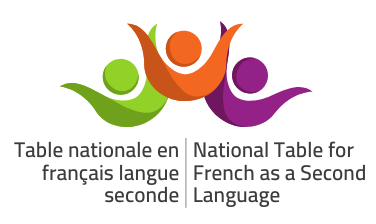Project Overview
- Research topics
- Region: Atlantique
- Project Overview

Project status
- In progress :
- April 2022-March 2028
- Completed :
- August 2020-March 2021
Project manager or
resource person
- Paula Lee Kristmanson
- Professor, Faculty of Education, University of New Brunswick and Director, Second Language Research Institute of Canada (L2RIC)
University of New Brunswick Faculty of Education
Improving the linguistic proficiency of pre-service French second language and French immersion teachers
This project focuses on improving the linguistic competency and confidence of FSL teacher candidates in the Bachelor of Education program at the University of New Brunswick (UNB) after successful implementation of virtual sessions aimed at supporting them in improving their language proficiency during the pandemic. As a result, many participants improved their language level by a half or a full level. Project activities include the creation of digital resources, weekly interactive linguistic improvement sessions, collection of data including oral proficiency interviews, surveys and focus groups, as well as provision of bursaries and awards to support teacher candidates
A major factor contributing to the shortage of French second language (FSL) and French immersion (FI) teachers is the less than adequate levels of French language proficiency (competency and confidence) of teacher candidates. Due to COVID-19 and the inability of holding face-to-face interactions and in-class meetings on campus, the University of New Brunswick (UNB) has been proposing linguistic experiences for students using digital technologies (both in real time and self-directed).
Project activities:
- Provide resources to support the linguistic improvement of teacher candidates housed on an online learning platform;
- Hold weekly interactive sessions to support the oral language development of teacher candidates during the 10-month Bachelor of Education program;
- Provide scholarships and prizes for pre-service teachers participating in language improvement sessions;
- Collection and analysis of data related to the project to determine if outcomes are being met, as well as for dissemination to stakeholders and research communities.
Targeted Results
Main takeaways (learnings)
- Competence and confidence are two components of language proficiency.
- Some students experienced linguistic insecurity (both francophone and non-francophone students).
- It is important not to dispel myths about the native speaker norm and about using the native speaker as the frame of reference for language proficiency.
- It was helpful for facilitators of the sessions and members of faculty to share their own linguistic journeys in order to further demystify the language learning process and reassure teacher candidates. We are all language learners.
- It is essential to focus on setting goals and to take a strengths-based perspective in order to enhance language proficiency.
Potential/desired collaborations
- Collaboration in research is promoted at UNB/L2RIC.
- Different contexts bring different insights.
- Each region presents a different context, but there are also interesting commonalities.
- L2RIC is already collaborating with several organizations on a variety of projects related to FSL and teacher recruitment and retention (Ex.: The Identifying requirements and gaps in FSL teacher competency: Recommendations and Guidelines study by CASLT).

